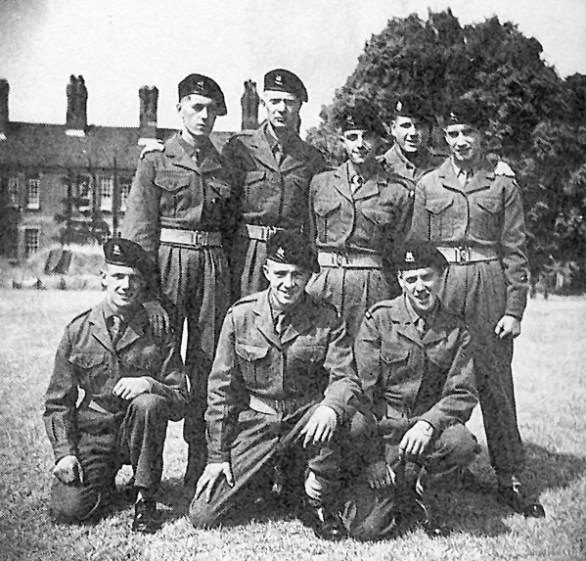Michael Caine, Korean War, Royal Fusilliers (1951-1953)
/Michael Caine in Korea: standing second from left
Maurice Joseph Micklewhite (Actor)
b. 14 Mar 1933
Royal Fusiliers 1951-1953
After the war, the British Government started a program in which every 18 year old boy was required to complete their National Service. In 1951 Michael Caine joined the Queens Royal Regiment and the Royal Fusiliers and served first in Germany and ultimately during the Korean conflict.
A year into his service, Maurice and his mates were offered a choice - an extra year of this or a stint of active service in Korea. Assessing their options in England, they made their minds up, they were sent to London and the Royal Fusiliers and soon found themselves in Liverpool, boarding the Empire Halladale, a ship that had been sunk and salvaged twice in WW2. Fortunately, the soldiers did not have to spend much time below deck as the ship was in bad condition, being ordered to sunbathe all the way to Korea in preparation for the conditions. Needless to say, Michael's English complexion betrayed him in the brutal sun.
After a 6 week trip, he found himself at Kure, in southern mainland Japan for training before heading to Pusan. They were sent to the front lines, the 38th Parallel, where they were stationed on a hill about a mile from the Chinese lines as the first line of defense.
Michael's own words on the time he spent in Korea:
Whenever I killed someone there was no guilt, no remorse - it didn't feel real. It was during the Korean War and I was just trying to stay alive. It was self-defense. It was always done at night and we never had any idea who we had killed. I didn't even think about it - we had machine guns and we just did it. I never did anything close up or hand-to-hand. It didn't give me nightmares, because the Army brutalizes you. It was like the World War I trenches - half a mile apart - and we were just firing backwards and forwards, so we never knew who any of our victims were as individuals. You never saw the whites of a man's eyes when you killed him.
I was nearly killed. There were four of us on patrol in a valley in the middle of the rice paddies. The Chinese were closing in on us and the officer said, 'Let's run towards their line - they won't expect it because they'll be expecting us to run away towards our lines.' So we did that and we ended up going right around them. They couldn't find us because they were looking in the wrong place and we got away. But we'd faced that moment that we thought was the end.
That night we went back to our bunkers and celebrated with a beer. We were just happy to be alive . . . I faced a moment when I knew I was going to die and I didn't run, I wasn't a coward, and it affected me deeply. I was at peace with myself and that's guided my life, not just in terms of whether someone's going to kill me, but in everything.
Upon his return to civilian life, Michael joined the Westminster Reperatory in Horsham, Sussex as an Assistant Stage Manager and began his career in the performing arts. Coincidentally his first acting role in a feature film was in “A Hill in Korea” with George Baker and Stanley Baker.






